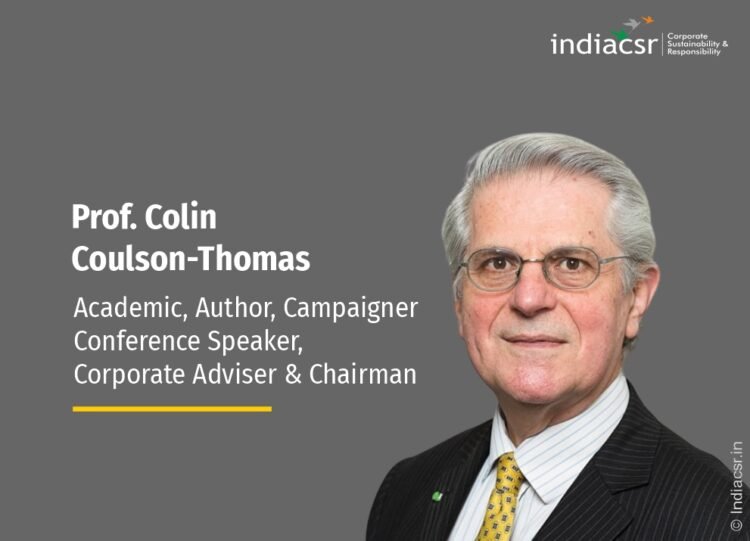Future ready boards need courage, foresight and purpose. They must be alert to the evolving aspirations and preferences of stakeholders, aware of their changing requirements and priorities and be ever ready to review, re-purpose and re-invent. To be future ready, boards should be open, suitably diverse, flexible and resilient. While endeavouring to anticipate and be proactive, they should take little if anything for granted.
They should monitor events, developments and trends, assess their possible impacts on a company and its stakeholders and help them to cope and respond. Unexpected events should be regarded as par for the course.
To help ensure that a company’s people and its stakeholders are also future ready, a board should engage, encourage and inspire. It should work with them to build mutually beneficial relationships and the capabilities to confront challenges and seize opportunities.
The future should be faced with confidence. While there is life there is hope. Boards should provide positive strategic direction. The most daunting challenges can be accompanied by unprecedented opportunities. The worst events may trigger the creation of new possibilities.
Boards should move beyond minimal compliance and business as usual. Building back better will require innovation and doing things differently. Strategies and policies should embrace all the elements and all the parties required for success. Boards need members who can negotiate collaborative arrangements and participate in their governance.

Business and capitalism should be inclusive, socially and environmentally responsible and sustainable. Boards should actively look for further opportunities to contribute to shared community and societal objectives and sustainable development goals.
Boards are sometimes blamed for consequences that follow from the lifestyles, aspirations and priorities of the communities and societies in which they operate. These often desire rates of economic growth and levels of consumption that our planet cannot support.
As awareness of consequences grows, some boards will need members with thick skins. Where there is cynicism, trust might need to be earned. Listening, receptive and tolerant leadership may be required, alongside action to assess and address negative externalities.

The negative impacts of human activity are affecting people around the world. Wildfires, floods, droughts and crop failures increasingly occur in multiple locations. Scientific consensus suggests the situation may get worse before it improves.
Recent events have demonstrated the fragility of global supply chains. Disruption, discontinuities and disasters could become more frequent and widespread. Boards should be ready with contingencies, recovery arrangements, and back-up and alternative strategies.
Some stakeholders may be more alert than others to existential threats. Boards should help management to identify key stakeholders who might be more willing than others to support a change of direction. Directors may need to become advocates, ambassadors and educators.
Traditional growth strategies are not sustainable. If levelling up is not to be replaced with holding back, public and private organisations and national and state governments should make every effort to decouple economic growth from adverse environmental impacts.

Directors and boards must be willing to cooperate and collaborate in collective activities to tackle shared existential challenges and seize related opportunities. They should be ever ready to revise strategic direction, transform existing business, operating and organisational models, and transition to more inclusive and sustainable ones.
The collective impact of far too many existing activities is polluting the oceans, degrading the environment and destroying eco-systems. The consequences of contemporary lifestyles and current business operations are reducing bio-diversity, over-exploiting natural capital and contributing to global warming and climate change.
Future boards and public bodies may have to write off unprecedented proportions of assets and infrastructure as temperatures and sea levels rise, low lying areas are inundated and regions are abandoned due to shortages of water and food. They should also prepare to face exceptional levels of disruption and mass migrations of people.
A future ready board must be ready to grasp nettles and prepared to take tough decisions. There may be environmentally damaging activities that need to be scaled back and discontinued. Capabilities will need to be re-purposed and re-deployed.

Many boards urgently need access to the scientific and technical expertise required to understand and assess certain strategic options. Potential solutions to existential challenges are being missed because expertise and skills needed to pursue them are engaged on ‘business as usual’ or incremental change activities.
Changes of direction need to occur and rapidly. Board perspectives should embrace collaborative and supply chain partners. Boards should be ready to use AI, digital and other technologies and different approaches and business and operating models as appropriate.
Corporate governance arrangements should be periodically reviewed to ensure that effective use is made of competent independent directors, and changes of direction and policy and their implementation can occur quickly. They should enable and ensure relevant stakeholders are engaged and involved in re-purposing and other activities as and when required.
Businesses need practical problem solvers. They require people with imagination and drive who can assume responsibility. Boards should encourage staff to create new possibilities, provide preferable options and develop better alternatives.
As windows of opportunity narrow and tipping points approach, more than incremental change is required. Directors and boards should unleash creativity, encourage responsible innovation and enable entrepreneurship.

Obstacles to progress and greater diversity should be removed. Where and when appropriate, boards should engage, involve and empower people. They should give them the freedom to explore, discover and pioneer.
Directors must be vigilant and stay engaged. Responsible and sustainable strategies need to be future proofed. Remaining in the game offers an opportunity to influence strategies, activities and outcomes.
Solvent companies with relevant capabilities can participate in collective activities to confront existential challenges. Hitherto, many boards have had to balance contending interests. They have faced differing perspectives and a lack of unity of purpose.
As more people are affected or become alert to present dangers, an alignment of corporate, individual, community and societal interests behind the shared objective of addressing climate change may occur.
Many boards have an emerging opportunity to build a coalition of stakeholders in support of effective collective action. Boards can play a key role in ensuring a focus on sustainable outcomes. They should seize the moment.
About the Author
Prof Colin Coulson-Thomas is India CSR’s global Ambassador for Sustainability, President of the Institute of Management Services and the Director-General, UK & Europe operations of India’s Institute of Directors. He holds a portfolio of international leadership roles and has advised directors and boards in over 40 countries.
Further Information
This article presents the author’s concluding remarks and recommendations at the Annual Directors’ Conclave 2021. The theme of this year’s conclave was ‘Creating a Future-Ready Board for Investment and Inclusive Growth’. The event is organized each year by India’s Institute of Directors (https://www.iodglobal.com/).
Bibliography
Dasgupta, Partha (2021), The Economics of Biodiversity: The Dasgupta Review, London, HM Treasury
IPCC (UN Intergovernmental Panel on Climate Change) (2021), Climate Change 2021: the Physical Science Basis, Genva, IPCC
UN Climate Change (2021), NDC (Nationally Determined Contributions) Synthesis Report, Geneva, 18th September
UNEP (United Nations Environment Programme) (2019), Global Environment Outlook 6, Cambridge, Cambridge University Press
United Nations (2015), Transforming our world: the 2030 Agenda for Sustainable Development [Resolution adopted by the General Assembly on 25 September 2015], 70/1, New York, NY, UN General Assembly
(India CSR)
Also Read: Corporate Governance: Chairman, Managing Director and Totalitarianism






















